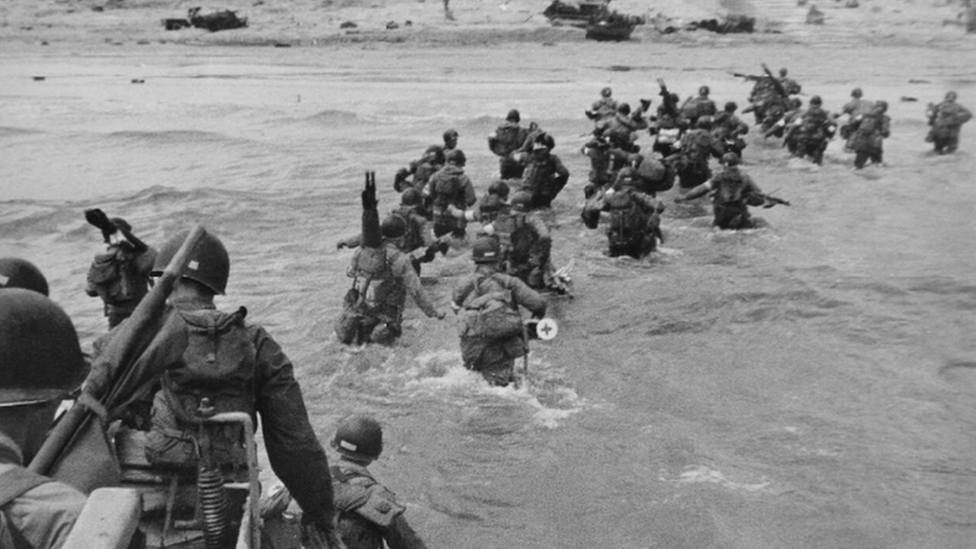D-Day veterans recall roles to mark anniversary
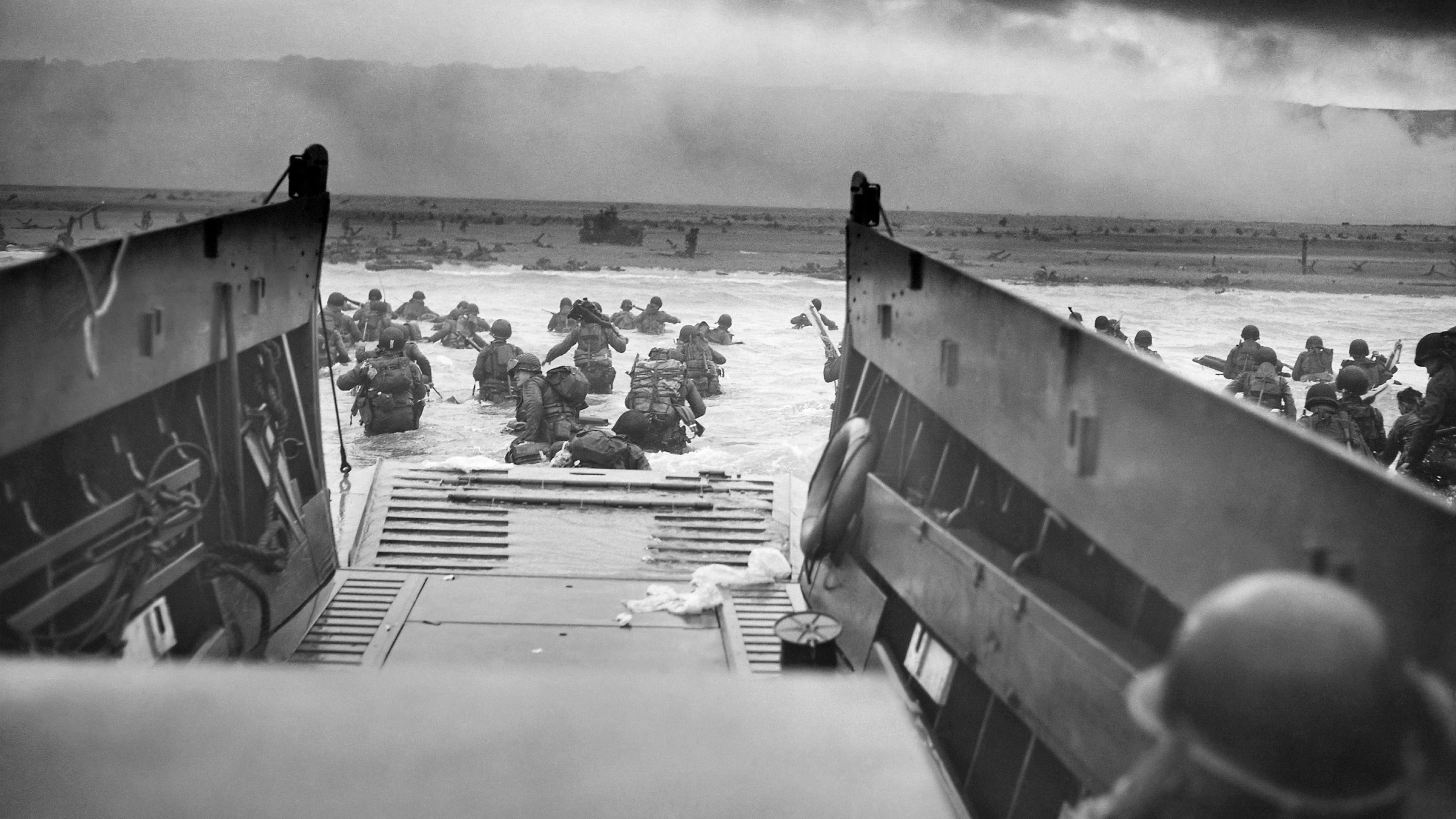
The D-Day landings marked the start of one of the most decisive military campaigns of World War Two
- Published
Veterans involved in one of World War Two's most decisive battles have been remembering their roles to mark the event's 80th anniversary.
Operation Overlord, also known as D-Day, began on 6 June 1944, and paved the way for the Allied forces' victory over Nazi Germany.
The naval, air and land assault on Normandy involved about 160,000 troops and saw the allies gain a foothold in France.
BBC South East has spoken to surviving veterans about the parts they played.
'The water was full of bodies'
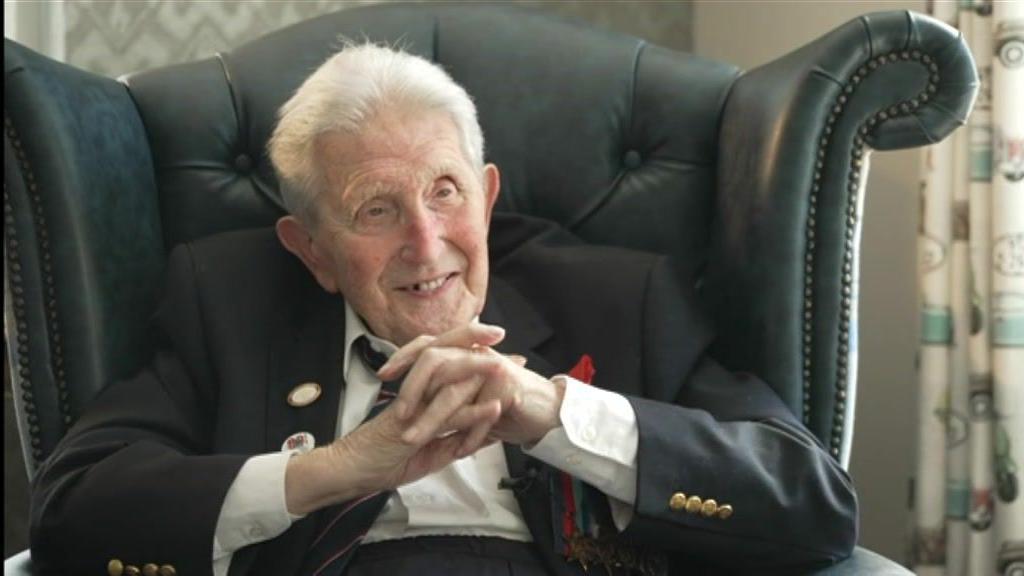
Geoffrey Weaving helped Canadian troops onto Juno beach
Geoffrey Weaving, from Horsham in West Sussex, was a 20-year-old sailor on HMS Astral, accompanying Canadian soldiers in the landing on Juno beach in Normandy.
"The ramp dropped and they all had to run onto the sand," he said.
"I could see them being shot. I could see them drop in the water. There was blood in the water.
"Some were wounded and they drowned.
"Others, the landing craft had put the ramp down too soon, but it was too deep, so a lot of those people died.
"The water was full of bodies."
'I wouldn't have missed it for anything'
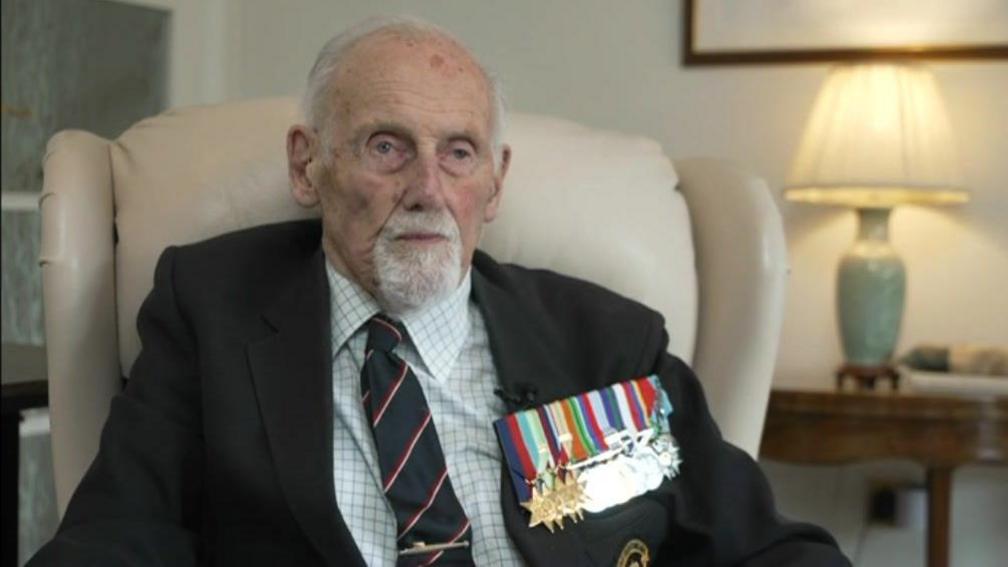
John Roberts was a 20-year-old officer on a Royal Navy destroyer
John Roberts, who celebrated his 100th birthday at his home in Whitstable, Kent in April, had a 40-year career in the Royal Navy, retiring in 1978 as a rear admiral.
Back in 1944, he was a 20-year-old officer on a destroyer, protecting minesweepers through the English Channel, then bombarding German positions that were radioed to the ship by an army officer on the beach.
He said: "It was exciting being part of it.
"As I said in a letter to my mother - it was fun. It’s awful to think of a war being fun, but I wouldn’t have missed it for anything."
He recalled the moment another ship was sunk.
"Suddenly, there was an explosion. It was one of the other destroyers that had been torpedoed by a German patrol craft.
"It was manned by Norwegian sailors and about 50 died."
Sitting three miles offshore, he soon began to see the results of the battle.
"One or two small boats began to come to us with casualties.
"The army officer, who had been talking to us from ashore about targets, was badly wounded and died on board.
"That brought it home to us how serious things were."
'You never thought of her as royalty'
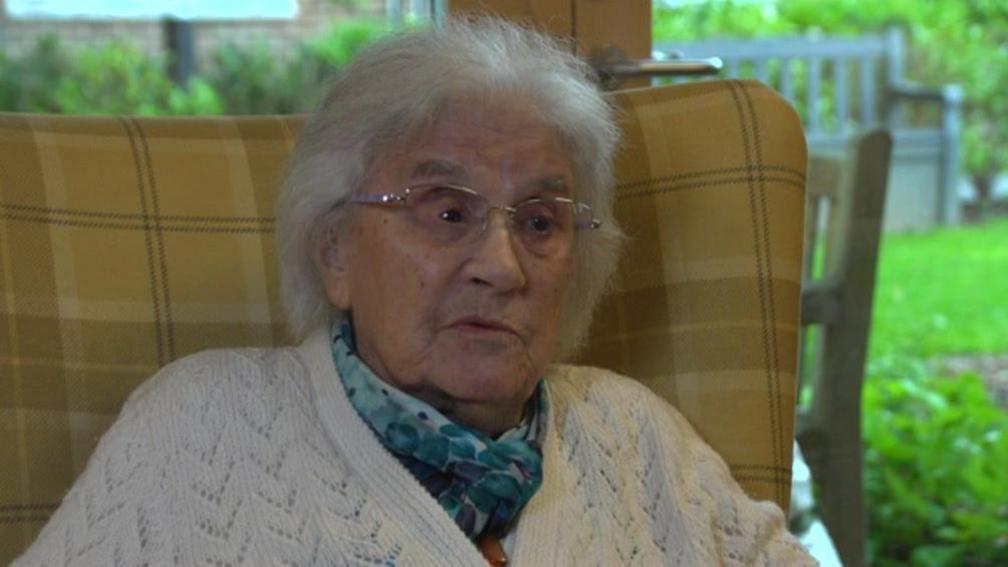
Violet Clarke met the future queen during her wartime service
At just 17 years-old, Violet Clarke left her civilian job and volunteered for the Auxiliary Territorial Service (ATS), where she helped prepare vehicles to be used in the invasion.
She said: "They came straight from the factory and we had to equip them ready to go to the front line.
"They were covered with tarpaulins and hidden under the trees at Merstham because of the bombers."
It meant she met the late Queen, then Princess Elizabeth, who was an ATS driver.
Ms Clarke, who now lives at the Royal British Legion Village in Aylesford, Kent, said: "She was an ordinary person. You never thought of her as royalty.
"I remember when the war was over and I went up to the Palace and I saw her.
"I thought it seemed so strange, she’d been one of us and here she was up on the balcony. She was a nice lady."
'It was a deceit'
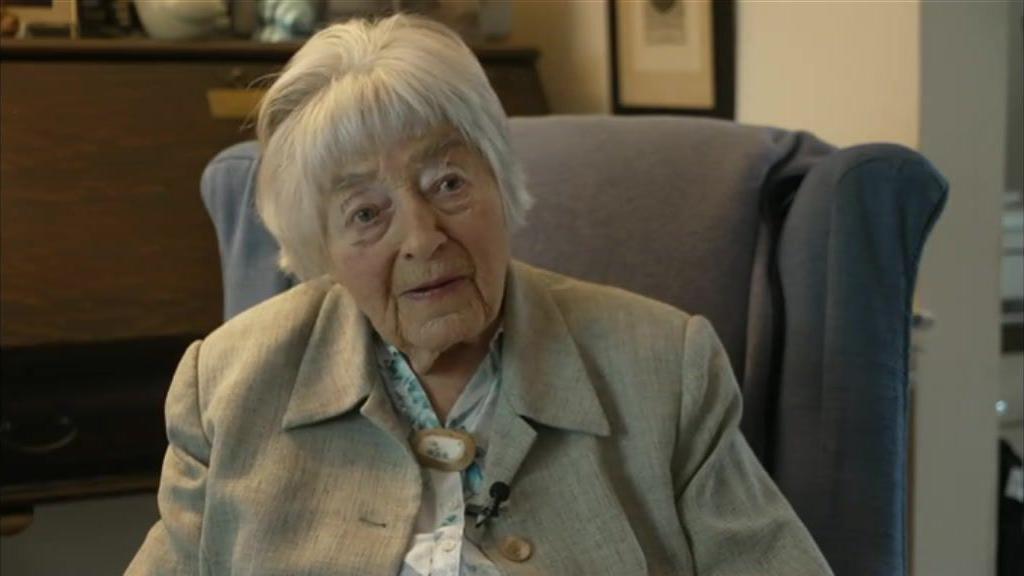
Patricia Owtram had an unexpected encounter with Winston Churchill and General Montgomery
German speaker Patricia Owtram was recruited to monitor enemy naval communications and was stationed on the coast between Dover and Folkestone.
At the time of D-Day, she had an encounter with two important figures.
She said: "I was reading my book on top of our cliff and I noticed a party coming up the path.
"I thought ‘that’s Winston Churchill’, and beside him General Montgomery.
"I did the only thing I could and said ‘good morning everybody’. And they all said ‘good morning’, and they went on to the cliff and looked across at Cap Gris-Nez and talked and then they went away.
"Later, I learned it was a deceit, that Churchill wanted the Germans to think we were going to land up the east end of the Channel, not in Normandy.
"That got reported to the German press and it worked. "
Follow BBC Sussex on Facebook, external, on X, external, and on Instagram, external. Send your story ideas to southeasttoday@bbc.co.uk , external or WhatsApp us on 08081 002250.
See also:
- Published23 May 2024

- Published22 May 2024
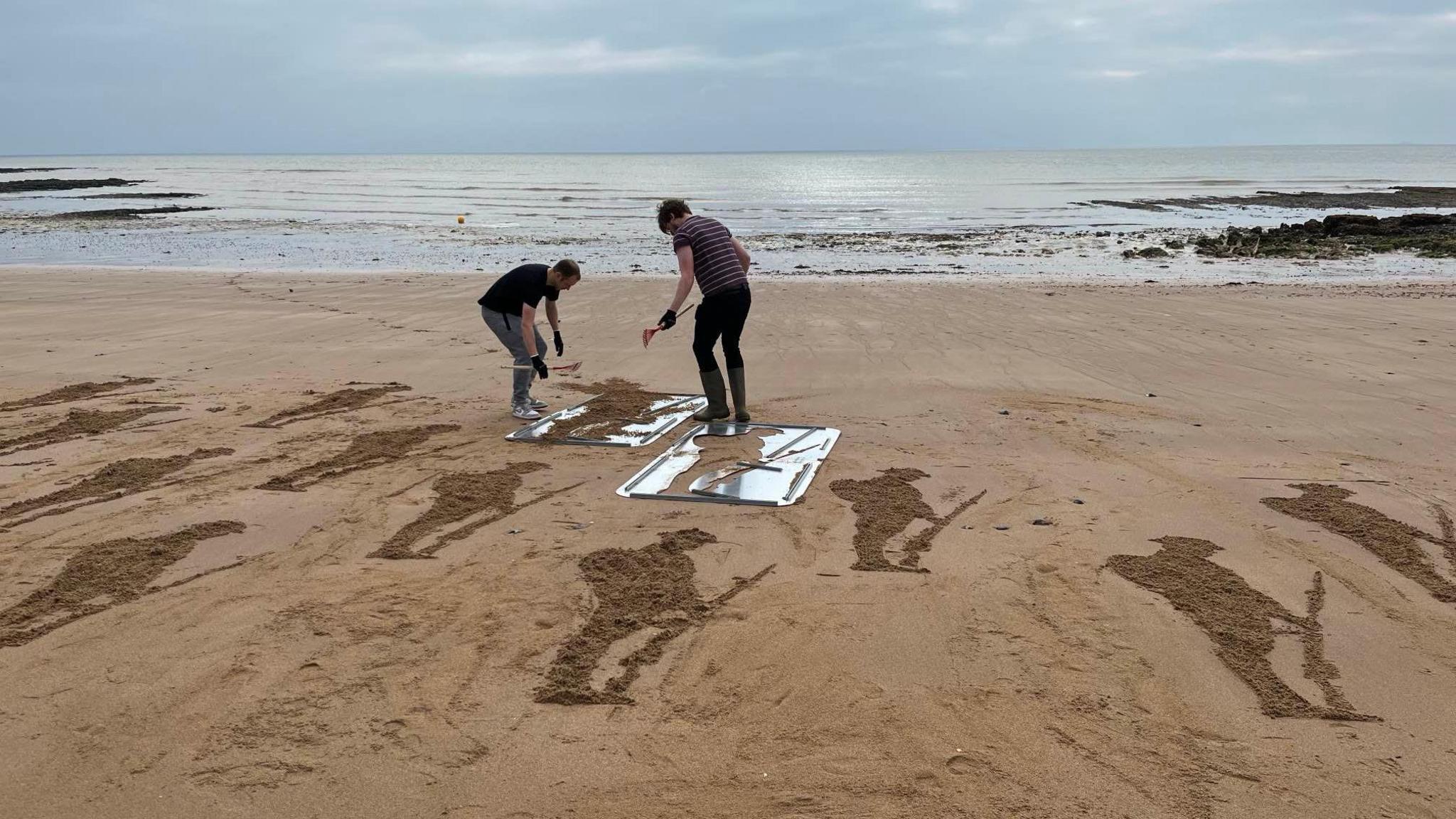
- Published4 April 2024
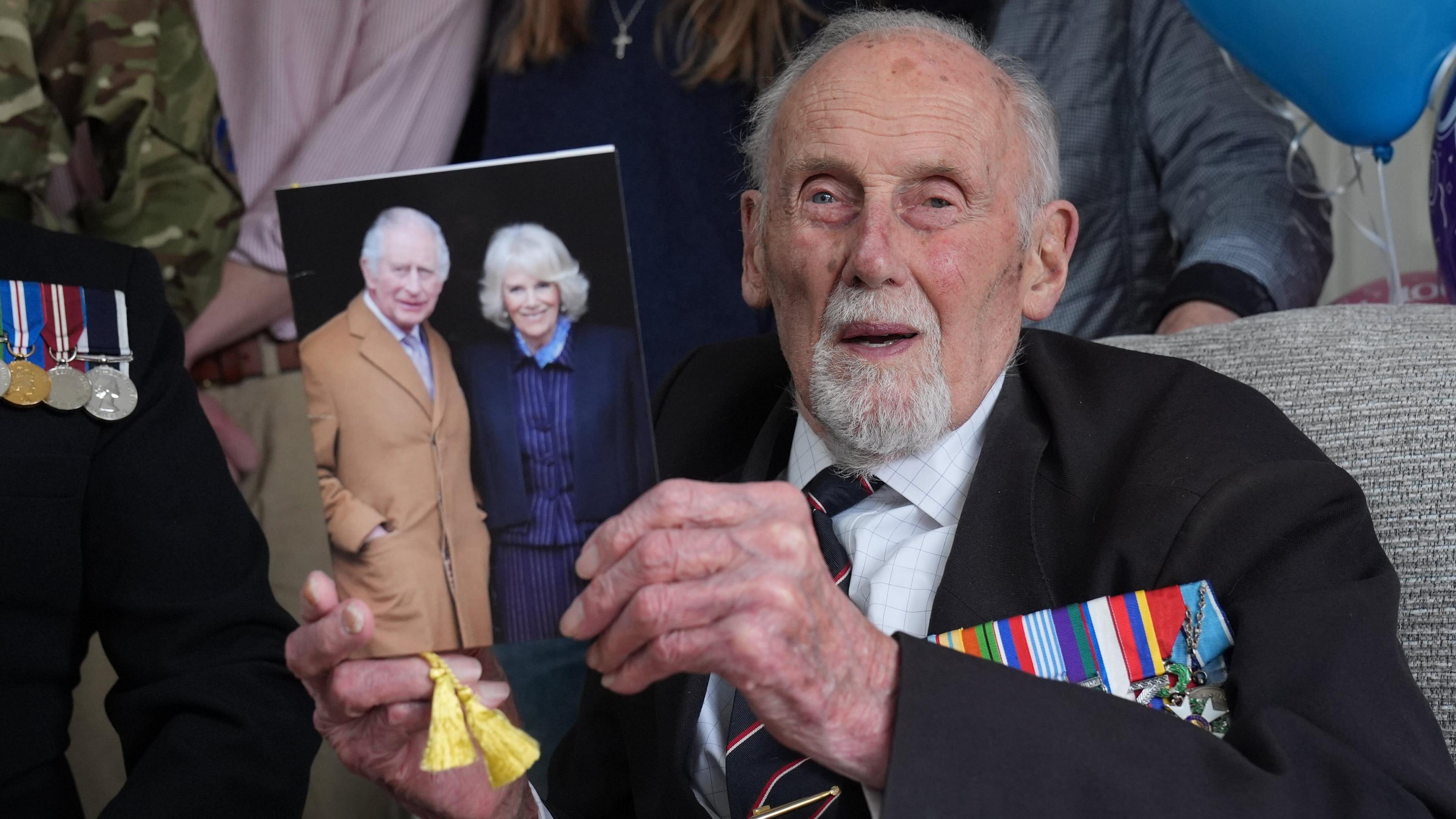
- Published27 February 2024
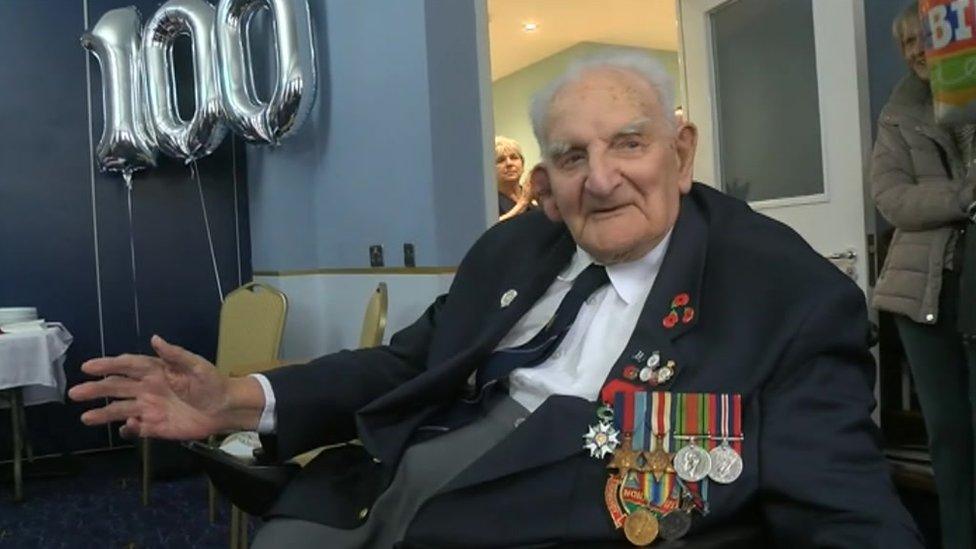
- Published6 June 2024
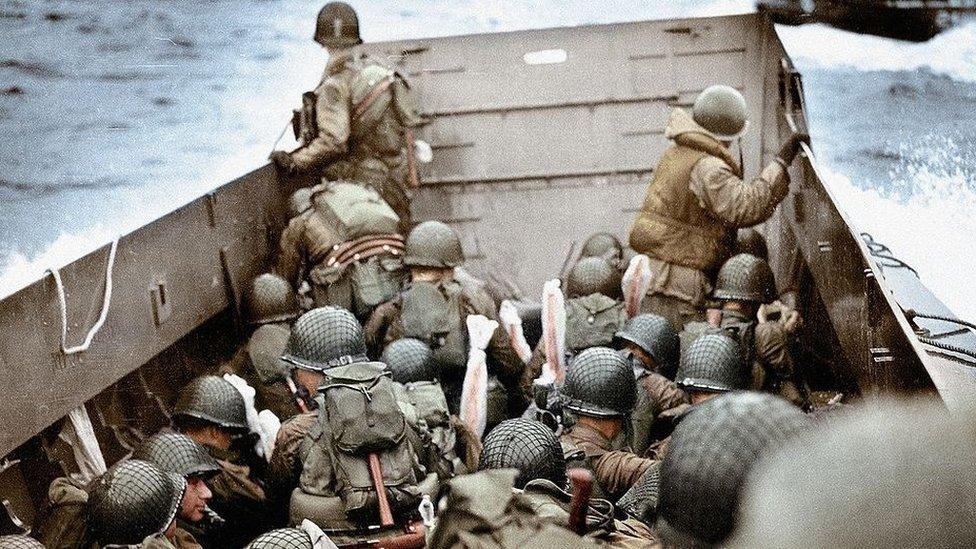
- Published5 June 2019
